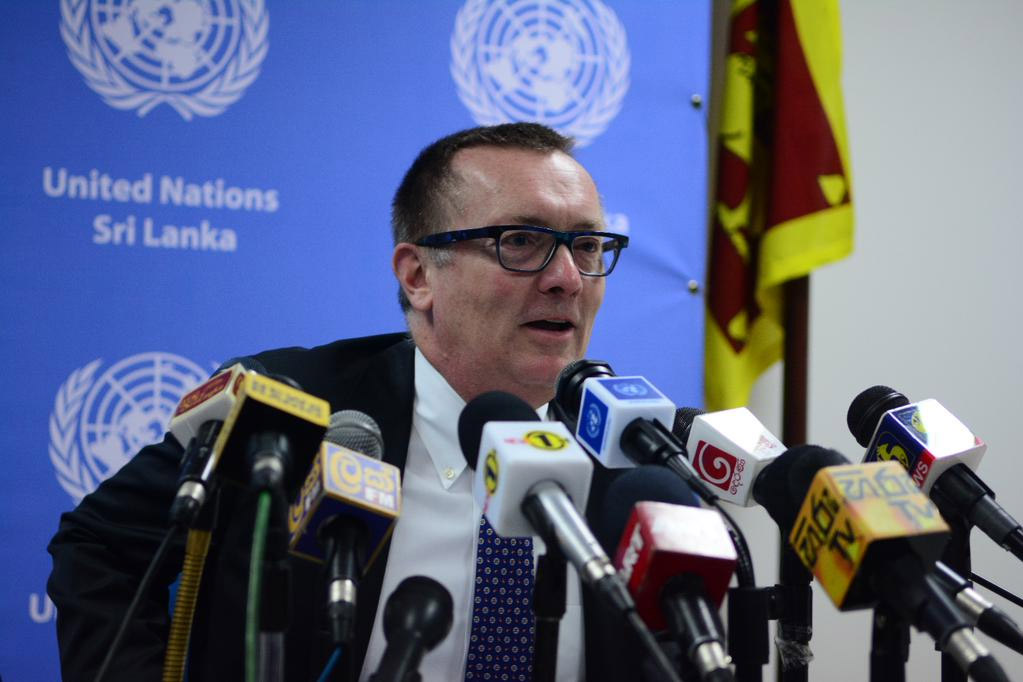
The United Nations will stand with the people and leaders of Sri Lanka as the country forges ahead along the path to reconciliation, the Organization’s top political official said today, as he voiced encouragement at the Government’s ongoing commitment to promote accountability and human rights following the nation’s three decade-long civil war.
Addressing reporters in the capital of Colombo during the conclusion of his four-day visit to the Asian country, the Under-Secretary-General for Political Affairs, Jeffrey Feltman, applauded Sri Lanka for its democratic elections and peaceful transition and reiterated Secretary-General Ban Ki-moon’s claim that the island nation was entering a “moment of historic opportunity.”
Mr. Feltman acknowledged that Sri Lankans had suffered during the country’s long conflict and that despite the work of many commissions, the list of grievances and unresolved issues remained long.
“Without question, there is still a wide trust deficit between communities in Sri Lanka, especially between the Tamil and the Sinhalese,” he stated while observing the UN’s ongoing efforts to encourage and foster a “spirit of inclusion and consultation” among all political stakeholders.
“Inclusion requires that all communities be willing to participate in these processes,” the Under-Secretary-General continued. “But it is first and foremost for Sri Lankans themselves to shape how to address issues of the past in order to find a common future.”
Nonetheless, Mr. Feltman urged Government leaders to take quick steps to address a number of issues ranging from land, detentions, disappearances, and the military posture in civilian areas. Meanwhile, in the long term, he underscored the country’s need to develop “a strong framework for accountability that meets international standards and norms and that is seen as credible across Sri Lanka.”
Throughout this process, he added, the United Nations would remain committed to assisting the Government in its search for accountability and reconciliation which, in turn, would contribute to the country’s long-term peace and prosperity.
“With regional allies and the world focused in a positive way on Sri Lanka, and with the citizens of Sri Lanka having drawn from Sri Lanka’s strong democratic history and traditions to promote a peaceful transition, this is a historic moment to seize,” he concluded.